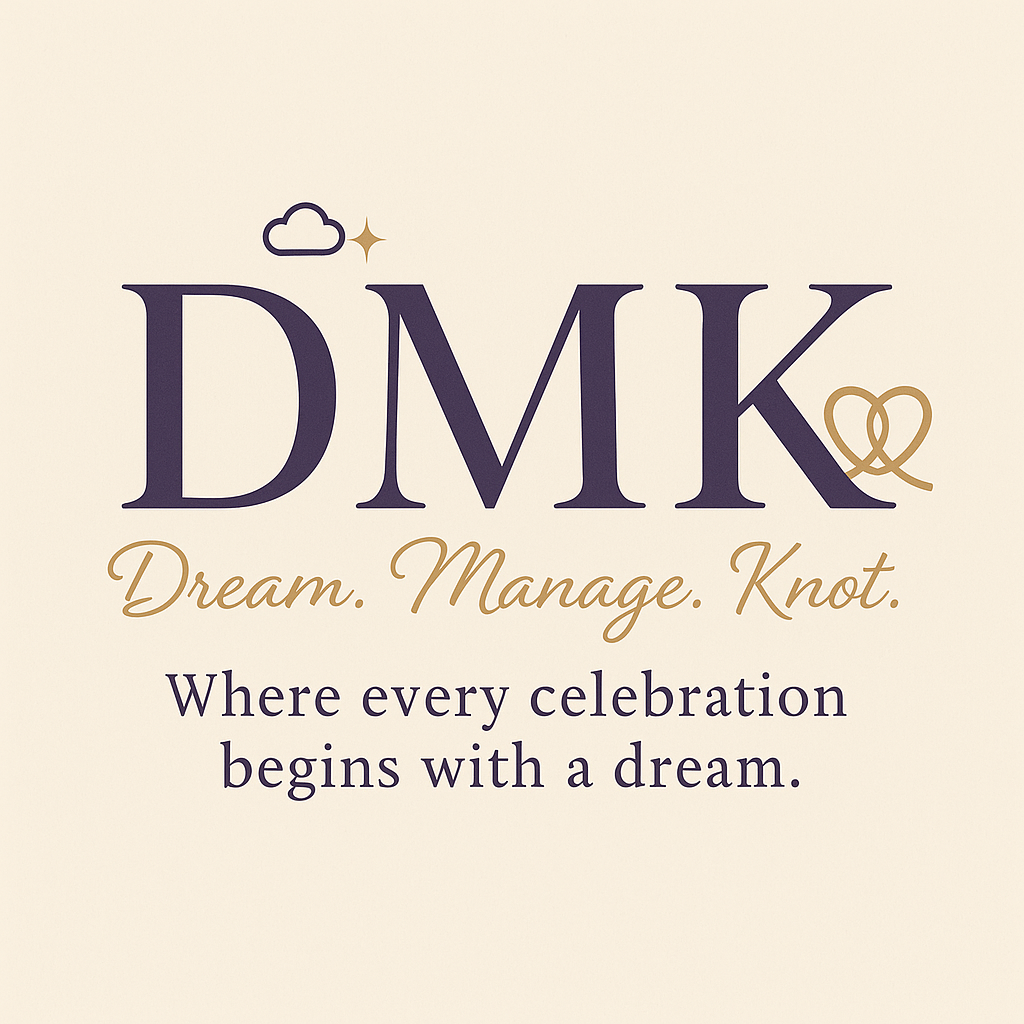Table of Contents
- Understanding Event planning: What It Entails and Why It’s Essential
Understanding Event planning: What It Entails and Why It’s Essential
In today’s fast-paced world, creating memorable event planning experiences through well-executed events has become more important than ever. Whether it’s a grand wedding, a corporate seminar, or an intimate birthday celebration, the success of any event lies in how well it is planned and executed. That’s where event management comes into play.

🎯 What is Event panning?
Event management is the process of planning, organizing, coordinating, and executing events from start to finish. It involves understanding the client’s vision, managing logistics, working with vendors, and ensuring every element – from decor to timing – is flawless. It’s a blend of creativity, strategic thinking, and on-ground coordination.
📋 The Key Components of Event planning
- Event Planning
This is where it all begins. Event planning includes defining the event’s objective, setting a budget, choosing the venue, creating themes, and outlining the event flow. - Event Coordination
Coordination involves syncing all moving parts – vendors, staff, equipment, and guests. It ensures that everything runs smoothly on the day of the event planning. - Event Execution
This is the “action” phase where everything comes together. Execution requires attention to detail, flexibility, and quick problem-solving to ensure the event goes off without a hitch.
📚 Types of Events in Event planning Services
- Weddings – From dreamy decor to flawless ceremonies, weddings require end-to-end management.
- Corporate Events – Seminars, product launches, and annual meets demand precision and professionalism.
- Private Parties – Birthdays, anniversaries, and family gatherings benefit from creative and personal touches.
- Cultural & Festival Events – Traditional and seasonal celebrations often need thematic planning and logistics.

✅ Why Is Event planning Essential?
- Saves Time & Stress – Professionals handle the heavy lifting, letting clients focus on enjoying their day.
- Adds Creativity & Style – Event managers bring fresh ideas and aesthetic value to every celebration.
- Ensures Flawless Execution – With a solid team behind the scenes, every detail is under control.
- Budget Efficiency – Experienced planners know how to make the most of your money without compromising quality.
The Key Components :
Every great event starts with a great plan—but it doesn’t end there. Event management is a multidimensional process that blends creativity, organization, and flawless execution. Whether it’s a wedding, corporate function, or private celebration, every successful event is built on a strong foundation of key components.
Here’s a closer look at the elements that make up successful event management:
1. Clear Vision & Purpose
Behind every memorable event lies a clearly defined objective. Understanding the purpose of the event—be it a wedding celebration, product launch, or milestone birthday—guides every other decision. A focused vision ensures that the planning aligns with the desired experience and outcome.
2. Strategic Planning
This is where the groundwork begins. Strategic planning involves:
- Setting goals
- Defining the target audience
- Creating a timeline
- Budgeting effectively
Detailed planning eliminates guesswork and prepares the event for a smooth execution.
3. Creative Concept & Design
Creativity adds character. From themes and color palettes to decor and lighting, this is where your event stands out. A great event design is not only visually appealing but also emotionally engaging, leaving lasting impressions on guests.
4. Vendor & Venue Coordination
Selecting the right venue and trusted vendors (catering, decoration, entertainment, photography) is crucial. Building strong partnerships and maintaining clear communication with suppliers ensures that everyone is aligned and delivers on time.
5. Guest Management
The guests are at the heart of every event. This includes:
- Sending timely invitations
- Managing RSVPs
- Ensuring seamless check-ins
- Providing a smooth guest experience throughout
6. On-Site Coordination
This is where event management shines. On the event day, everything needs to function like clockwork. The team is responsible for:
- Handling logistics
- Troubleshooting issues
- Managing staff
- Ensuring the timeline is followed
A calm and prepared on-site team is key to a flawless event.
7. Post-Event Wrap-Up
Successful event management doesn’t end when the music stops. Post-event activities include:
- Collecting feedback
- Settling vendor payments
- Analyzing what worked well
- Sharing memories through photos and videos
This step helps improve future events and builds lasting relationships with clients.
Top Tools and Technologies :
In today’s fast-paced world of event planning, using the right tools can be the difference between a good event and a great one. Whether you’re organizing weddings, corporate events, or private celebrations, modern technologies simplify coordination, improve communication, and elevate guest experiences.
Here are the top tools and technologies that can transform and streamline your event management process:
1. Event Management Software
These platforms allow end-to-end planning, including guest list management, vendor coordination, budgeting, and timelines—all in one place.
Top Picks:
- Cvent – Ideal for large-scale professional events
- Whova – Excellent for attendee engagement and networking
- Eventbrite – Great for ticketing and event registration
2. Mobile Event Apps
Keep your team and attendees informed with real-time updates, schedules, maps, and notifications.
Best for:
- Interactive agendas
- Live polling & Q&A
- Push notifications
Try: Boomset, EventMobi, or Bizzabo
3. AI-Based Chatbots
AI chatbots enhance the customer experience by handling FAQs, guiding users, and managing RSVPs on your website or social media channels.
Use With: Facebook Messenger, WhatsApp Business, or custom website integration.
4. Virtual & Hybrid Event Platforms
Post-pandemic, virtual and hybrid events are more common than ever. Use immersive platforms for online weddings, conferences, or brand activations.
Top Platforms:
- Hopin
- Zoom Events
- Airmeet
5. Project Management Tools
Keep your team organized with checklists, task assignments, deadlines, and real-time updates.
Popular Choices:
- Trello – Visual task management with boards and cards
- Asana – Great for workflow tracking
- Notion – All-in-one workspace for notes, calendars, and collaboration
6. Digital Media & Content Tools
Event visuals matter! Use these for design, branding, and marketing your event.
Tools to Try:
- Canva – Create beautiful invites, posts, and presentations
- Adobe Express – For high-end design
- Lumen5 – Turn text into promotional videos
7. Venue & Vendor Search Engines
These platforms save time by helping you find and compare local venues and trusted vendors.
Use:
- Peerspace
- WeddingWire
- VenueFinder
8. Communication & Collaboration Tools
Real-time communication helps teams, vendors, and clients stay on the same page.
Try:
- Slack – Channel-based team messaging
- Google Meet – Easy video calls and scheduling
- WhatsApp Groups – For quick on-the-go updates
9. Analytics & Feedback Tools
Get valuable insights into your event’s performance with live feedback, surveys, and data reports.
Tools:
- Typeform or Google Forms – For custom feedback surveys
- SurveyMonkey – For in-depth attendee satisfaction analysis
10. Live Streaming & Photography Tech
Capture and share your event in real-time with high-quality tools.
Examples:
- Mevo Start Cameras
- DJI Drones – Aerial shots
- Instagram Live / Facebook Live – For social sharing
Common Challenges in Event planning :
Event management may seem glamorous, but behind the scenes lies a dynamic and complex process that requires strategy, adaptability, and a calm approach to challenges. From last-minute cancellations to vendor miscommunications, even the most experienced planners face hurdles.
In this article, we’ll explore the most common challenges in event planning and provide actionable strategies to overcome them, ensuring your events run smoothly and successfully.
1. Unclear Objectives and Expectations
The Challenge:
Without clearly defined goals from clients or stakeholders, events can quickly lose direction. Unclear expectations lead to scope creep, budget issues, and confusion during execution.
Solution:
- Hold a detailed kickoff meeting with stakeholders.
- Set SMART goals (Specific, Measurable, Achievable, Relevant, Time-bound).
- Use a written brief or checklist to define success criteria.
2. Managing Vendor Relationships
The Challenge:
Vendors are crucial to an event’s success. Miscommunication, late deliveries, or hidden costs from vendors can cause stress and disruptions.
Solution:
- Vet vendors thoroughly before contracts are signed.
- Maintain written agreements with clear deadlines, deliverables, and expectations.
- Keep open lines of communication with regular follow-ups.
- Use vendor management software to track status and performance.
3. Last-Minute Changes
The Challenge:
Unexpected changes—weather, cancellations, delays, or guest list modifications—can derail planning and logistics.
Solution:
- Always have a contingency plan (Plan B and C!).
- Build flexibility into timelines and budgets.
- Assign a “crisis manager” or point person to handle any sudden issues.
- Use real-time communication tools (like WhatsApp or Slack) for fast coordination.
4. Staying Within Budget
The Challenge:
With fluctuating prices and unexpected expenses, staying within the allocated budget is a major concern.
Solution:
- Create a detailed budget from the outset, including a 10–15% buffer for unexpected costs.
- Track every expense with budgeting software like Excel, Zoho, or HoneyBook.
- Regularly review your finances with your team and client.
5. Weather Uncertainty for Outdoor Events
The Challenge:
Bad weather can ruin outdoor weddings, festivals, and corporate retreats.
Solution:
- Always check long-range forecasts and plan accordingly.
- Book venues with indoor backup options.
- Rent tents, canopies, or heaters as needed.
- Prepare weather contingency communication plans for guests and vendors.
6. Technical Issues
The Challenge:
Tech failures—microphones not working, Wi-Fi outages, or A/V equipment malfunctions—can affect presentations and performances.
Solution:
- Conduct tech rehearsals before the event.
- Hire a qualified technician for setup and support.
- Keep spare equipment (microphones, batteries, cables) on hand.
- Use reliable equipment and test everything in advance.
7. Risk Management & Legal Concerns
The Challenge:
Events come with risks, such as accidents, property damage, or legal liabilities.
Solution:
- Acquire insurance for liability, weather, and cancellations.
- Comply with all permits, regulations, and safety codes.
- Conduct a risk assessment of your venue and event activities.
- Have waivers, contracts, and emergency plans in place.
8. Low Attendance or Engagement
The Challenge:
Despite your planning, people may not show up or engage with the event activities.
Solution:
- Market the event strategically via email, social media, and targeted ads.
- Offer RSVP incentives or exclusive experiences.
- Use engagement tools (like live polls, photo booths, or giveaways) during the event.
- Follow up with post-event surveys to understand what worked and what didn’t.
9. Team Coordination Breakdown
The Challenge:
With multiple staff, volunteers, and vendors, confusion can arise regarding roles and responsibilities.
Solution:
- Create a detailed event schedule and role assignments.
- Use a project management app like Asana, Trello, or Monday.com.
- Host a team briefing before the event to align everyone.
- Establish a chain of command for quick decision-making.
The Future of Event planning :
The event management industry is evolving at lightning speed. From post-pandemic shifts to the rise of immersive technology, today’s events are not just about celebration—they’re about connection, sustainability, and meaningful experiences. Staying ahead of trends is crucial for professionals and businesses in this space.
Let’s dive into the key trends shaping the future of event management.
1. Sustainable Events Are Here to Stay
Why it matters:
With growing awareness around climate change and environmental impact, attendees now expect eco-conscious decisions. Sustainability is no longer an option—it’s a necessity.
Key practices:
- Use of biodegradable and recyclable materials
- Digital invitations and paperless check-ins
- Zero-waste catering & donation of leftovers
- Locally sourced decor and floral arrangements
- Carbon offsetting for travel and logistics
Takeaway:
Eco-friendly planning not only reduces your carbon footprint but also enhances your brand reputation and appeal to socially conscious clients.
2. Hybrid Events: The Best of Both Worlds
Why it matters:
The hybrid format—offering both in-person and virtual experiences—has gained permanent traction post-2020. It allows greater flexibility and accessibility for attendees.
Features of a hybrid event:
- Live streaming of keynotes and performances
- Interactive Q&A and chat features for remote audiences
- On-demand video content after the event
- Separate experiences tailored for online and offline participants
Takeaway:
Hybrid events broaden your reach and create more inclusive experiences for global audiences while maintaining personal connection.
3. Technology as a Game-Changer
Why it matters:
Tech innovations are redefining the way events are planned, executed, and experienced—from AR/VR integration to AI-powered analytics.
Emerging tech trends:
- Event apps for real-time updates, networking & feedback
- AI chatbots for 24/7 guest support and registration
- Facial recognition for faster check-ins and enhanced security
- Augmented Reality booths and 3D product demos
- Data analytics to measure engagement, ROI, and attendee behavior
Takeaway:
Incorporating smart tech enhances efficiency, personalized guest experiences, and provides valuable data insights for future planning.
4. Personalization is the New Standard
Why it matters:
Guests expect curated, meaningful experiences that reflect their preferences. Personalization builds emotional connections and increases satisfaction.
Ways to personalize:
- Custom welcome kits or gifts
- Personalized agendas and sessions based on interest
- Food and drink menus based on guest preferences/allergies
- AI-curated networking recommendations or seating arrangements
- Post-event follow-ups tailored to individual experiences
Takeaway:
The more an event feels tailored, the more memorable it becomes. Personalization boosts engagement, loyalty, and word-of-mouth marketing.
5. Social Media & Influencer Integration
Why it matters:
Social platforms are essential for building hype, engaging audiences, and extending the lifespan of an event.
Tactics to implement:
- Use branded hashtags and geofilters
- Create Instagram-worthy photo ops or reels
- Collaborate with micro-influencers in your niche
- Run live streams, polls, and giveaways on social media
- Share behind-the-scenes content pre- and post-event
Takeaway:
When done right, social media turns your event into a shareable moment, boosting reach and reinforcing brand visibility.
Conclusion :
Whether you’re planning a grand wedding, a corporate conference, or an intimate celebration, success lies in the details. Expert event management goes beyond just logistics—it’s about creating seamless, unforgettable experiences that resonate with your audience.
By embracing modern tools, staying ahead of industry trends, and delivering personalized touches, you can turn any occasion into a remarkable event. Let strategy, creativity, and professionalism lead the way—and watch your next gathering transform into a memorable masterpiece.At Events by DMK, we don’t just plan events—we craft moments that matter.
Listen to my podcast
Home » Blogs »
The Best Event Planner & Wedding Planner

